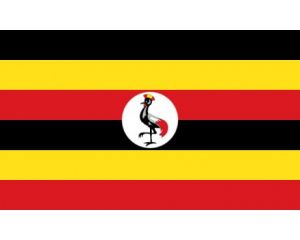Language/Ganda/Vocabulary/Feelings-and-Emotions
Hi Ganda learners! 😊
In this lesson, we will learn about feelings and emotions in Ganda. Emotions are universal but they are expressed differently in different cultures. Understanding the language of emotions is important for effective communication.
Don't hesitate to look into these other pages after completing this lesson: How to say Good Bye? & Education.
Basic vocabulary[edit | edit source]
Let's start with some basic vocabulary:
| Ganda | Pronunciation | English |
|---|---|---|
| Ənnyonyi | ɪ̀n:ɔ̀nɪ̀ | Love |
| Kwata. | Kwàːtà | Hate |
| Kugwa. | Kùːgwá | Fall in love |
| Kufa. | Kùːfà | Die |
| Kukyaala. | Kúkjàːlà | Engagement |
| Kulumya. | Kùlúmjá | To miss someone |
| Kunkumula. | Kùnkùmùlà | To worry |
| Kwoyagala. | Kwɔ̀jʌ́gàlà | To like |
| Kulaba. | Kùlàbà | To see |
| Kubye. | Kùbyé | To cry |
| Kukyawa. | Kùkjàwà | To laugh |
Examples in context[edit | edit source]
Person 1: Nkomawo ekiro. (I am happy today.) Person 2: Twagenda kwonka kubaseera? (Shall we go out tonight?)
Person 1: Nsaba ensiimi. (I am asking for forgiveness.) Person 2: Nkubuuza ki? (What did you do?)
Person 1: Ndeeta mu kukyaala. (I am ready for engagement.) Person 2: Kale, essanyu lyange. (Congratulations, my friend.)
Person 1: Nzize kwoyagala byonna. (I like everything.) Person 2: Obulamu bwange mbulina obulungi. (I hope my life gets better.)
Advanced vocabulary[edit | edit source]
Now let's learn some more advanced vocabulary:
| Ganda | Pronunciation | English |
|---|---|---|
| Kukwatika | kùːkwàtìkà | To feel disgusted |
| Nkusanyaamu | ŋkʊsàɲàːmù | To feel guilty |
| Kusiba | kùsìːbà | To feel ashamed |
| Kuyilitambula | kwjɪlì̀tàmbúlà | To admire |
| Kubeera | Kùbeèrà | To regret |
| Kusinza | kùsìnzà | To astonish |
| Kusobya | kùsòbyà | To reveal a secret |
| Kusanyuka | kùsányùkà | To enrich oneself |
| Kuzannya | kùzànnjà | To enthuse oneself |
| Kwozikiza | kwɔ̀zìkìzà | To motivate oneself |
Examples in context[edit | edit source]
Person 1: Nja kusibyamu ebbanga. (I feel ashamed of my mistake.) Person 2: Nkubuuza ki eyali kino? (What happened here?)
Person 1: Njagala ku kwata Mukisa. (I hate Mukisa.) Person 2: Kiki? (Why?)
Person 1: Nkuwulira bintu. (I appreciate things.) Person 2: Ndowakubiriza. (I congratulate you.)
Person 1: Nkubeera mu bulungi. (I regret being good.) Person 2: Kiki ekilala kyo? (Why do you say that?)
Cultural notes[edit | edit source]
- In Ganda culture, respect is highly valued. People often use polite language, especially when addressing elders or people to whom they owe respect. - Greetings are also an important part of Ganda culture. It's common to greet people when meeting them or passing them by saying "ki kati?" which means "how are you?". The other person is expected to reply with "bulungi", which means "fine". - Ugandans are generally friendly and welcoming people. The country's official language is English but Ganda is the most widely spoken local language.
Practice with a native speaker[edit | edit source]
Practice makes perfect! To improve your Ganda vocabulary, you can also use the Polyglot Club website. Find native speakers and ask them any questions!
Sources[edit | edit source]
➡ If you have any questions, please ask them in the comments section below.
➡ Feel free to edit this wiki page if you think it can be improved. 😎

